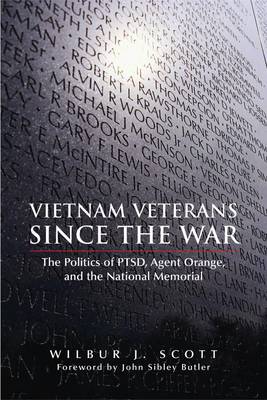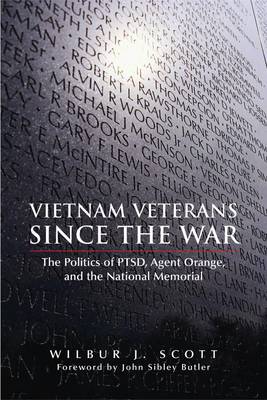
- Retrait gratuit dans votre magasin Club
- 7.000.000 titres dans notre catalogue
- Payer en toute sécurité
- Toujours un magasin près de chez vous
- Retrait gratuit dans votre magasin Club
- 7.000.0000 titres dans notre catalogue
- Payer en toute sécurité
- Toujours un magasin près de chez vous
Vietnam Veterans Since the War
The Politics of Ptsd, Agent Orange, and the National Memorial
Wilbur J Scott, John Sibley ButlerDescription
War is hell, and the return to civilian life afterwards can be a minefield as well, especially for veterans of a "bad war." Soldiers coming home from Vietnam faced unique challenges as veterans of a controversial war whose divisiveness permeated every step of the re-entry and readjustment process. In his balanced and highly readable account, Vietnam Veterans since the War, sociologist Wilbur J. Scott tells the story of how the veterans and their allies organized to articulate their concerns and to win concessions from a reluctant Congress, federal agencies, and courts.
Scott draws on published records, hours of personal interviews with veterans, and his experience as an infantry platoon leader in Vietnam to explore the major social movements among his fellow veterans in the crucial years from 1967 to 1990, including the antiwar movement, the successful effort to win recognition of post-traumatic stress disorder (PTSD) by the American Psychiatric Association, the establishment of veterans' outreach centers, the controversy over the defoliant Agent Orange and its long-term effects, and the struggle to create the National Vietnam Veterans Memorial in Washington, D.C. His new afterword brings the story up to date and demonstrates that while the United States' involvement in Vietnam continues to be controversial, many of the tensions engendered by the war have been overcome.
Spécifications
Parties prenantes
- Auteur(s) :
- Editeur:
Contenu
- Nombre de pages :
- 320
- Langue:
- Anglais
Caractéristiques
- EAN:
- 9780806135977
- Date de parution :
- 08-03-04
- Format:
- Livre broché
- Format numérique:
- Trade paperback (VS)
- Dimensions :
- 153 mm x 230 mm
- Poids :
- 421 g

Les avis
Nous publions uniquement les avis qui respectent les conditions requises. Consultez nos conditions pour les avis.






